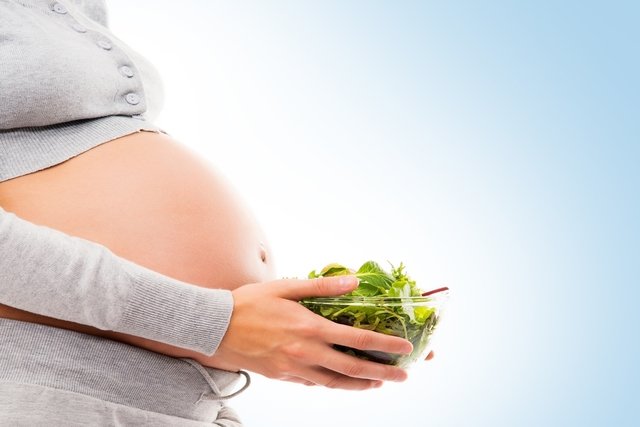Anemia during pregnancy is characterized hemoglobin levels that are below 110 mg/dL. This usually occurs due to hormonal changes during pregnancy, but can also occur due to an iron or folic acid deficiency, or conditions such as thalassemia or pre-eclampsia.
Experiencing anemia pregnancy can lead to symptoms such as fatigue, weakness, paleness and a racing heart. Depending on the cause of the anemia, some women may also notice other symptoms, like yellow skin or eyes and lumps on the body.
If you suspect you may have anemia during your pregnancy, you should consult an obstetrician for assessment and treatment. The doctor may advise diet changes, with nutrient-dense foods with iron and folic acid, or additional supplementation in some cases.

Common symptoms
The main signs of anemia during pregnancy include:
- Fatigue
- Dizziness
- Headache
- Weakness
- Lack of appetite
- Pale skin
- Fast heart rate
Depending on the cause of anemia, other symptoms may also appear, like abdominal pain, swelling throughout the body, and yellow skin or eyes.
Also recommended: 10 Anemia Symptoms That May Mean You Have Low Hemoglobin tuasaude.com/en/anemia-symptomsSymptoms checker
If you think you may have anemia, report your symptoms below to determine your risk for this condition
This symptom quiz is only a guidance tool and does not serve as a diagnosis or replace an assessment a doctor.
Is anemia during pregnancy harmful?
Having anemia during pregnancy can be harmful for both the woman and the baby, as it can increase the risk for excessive bleeding during childbirth, miscarriage, premature birth and low birth weight.
Possible causes
Anemia in pregnancy can be caused by:
- Common hormonal changes during pregnancy, which lead to water retention by the kidneys and increased blood volume
- Nutrient deficiency, such as iron, folic acid or vitamin B12
- Diseases such as sickle cell anemia, thalassemia or pre-eclampsia
- Blood loss, from heavy menstrual bleeding before pregnancy or hemorrhages
The type of anemia that a woman can have pregnancy can vary depending on the cause, therefore the doctor will likely order bloodwork to help identify the type. This will help to guide the most appropriate treatment.
Confirming a diagnosis
Anemia during pregnancy is normally diagnosed by the OB through blood tests that carried out during prenatal care. The woman is deemed to have anemia if the hemoglobin level is below 110 mg/dL.
Also recommended: Anemia Blood Tests: 8 Lab Tests Your Doctor May Order tuasaude.com/en/anemia-blood-testTreatment options
Treatment for anemia during pregnancy depends on the cause, and the doctor may advise diet changes and iron supplements as necessary.
What to eat
To treat anemia during pregnancy, you opt for foods that are high in iron and folic acid, like meat, liver, steak, beans, spinach, lentils and kale. This can help to restore iron iron levels in the body, which is important for hemoglobin production. Check-out a complete list of iron-rich foods you can add to your diet.
Furthermore, to promote of iron absorption, you should consume these foods with citrus fruit like orange, lemon, pineapple or tangerine.
Use of supplements
The OB may also recommend daily iron supplementation, which can be done through the use of ferrous sulfate liquid or tablets.
These supplements can cause side effects such as diarrhea, constipation, nausea and heartburn, and should be taken according to your doctor's instructions. Read more about iron supplements and how they are taken.
